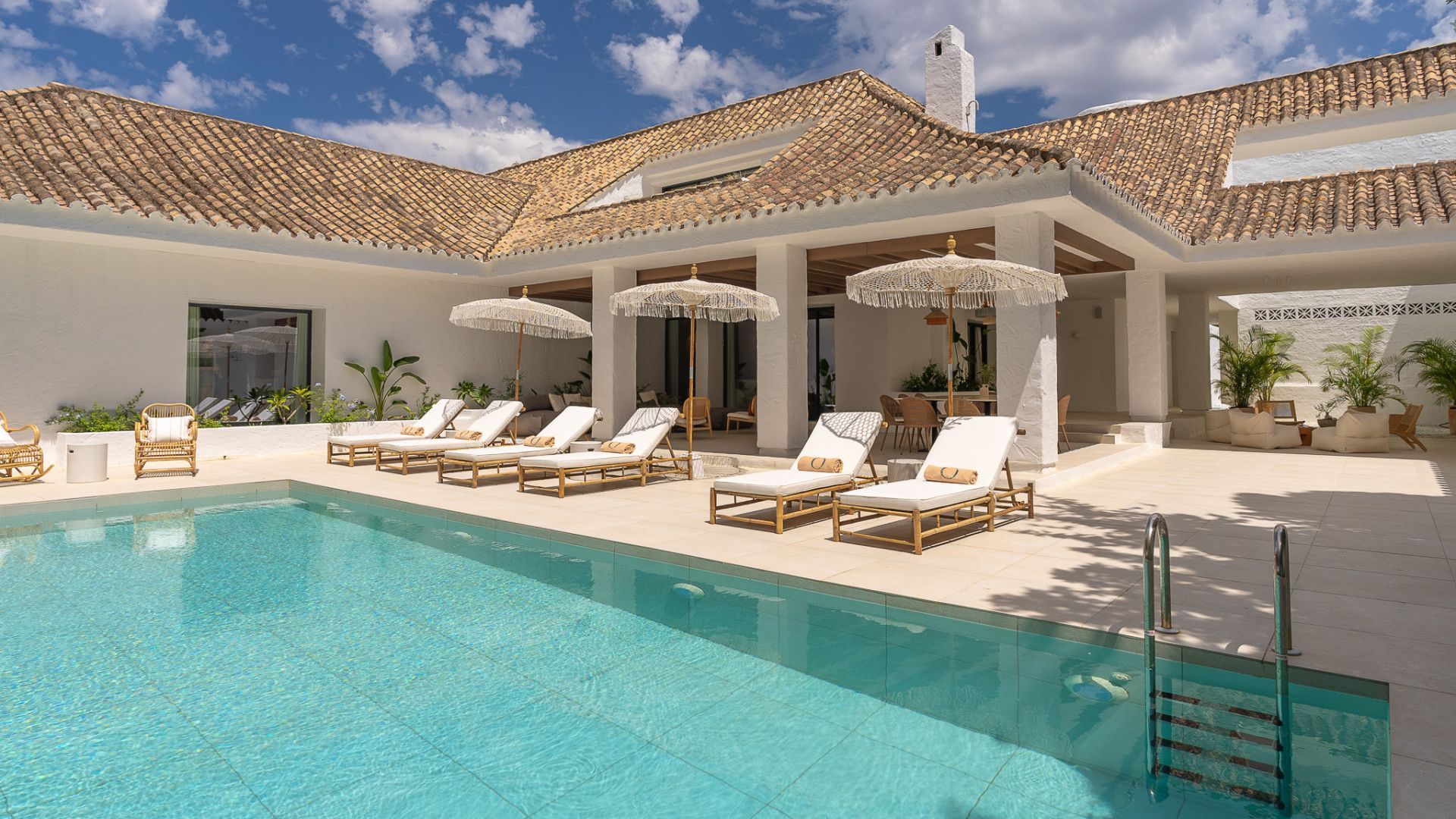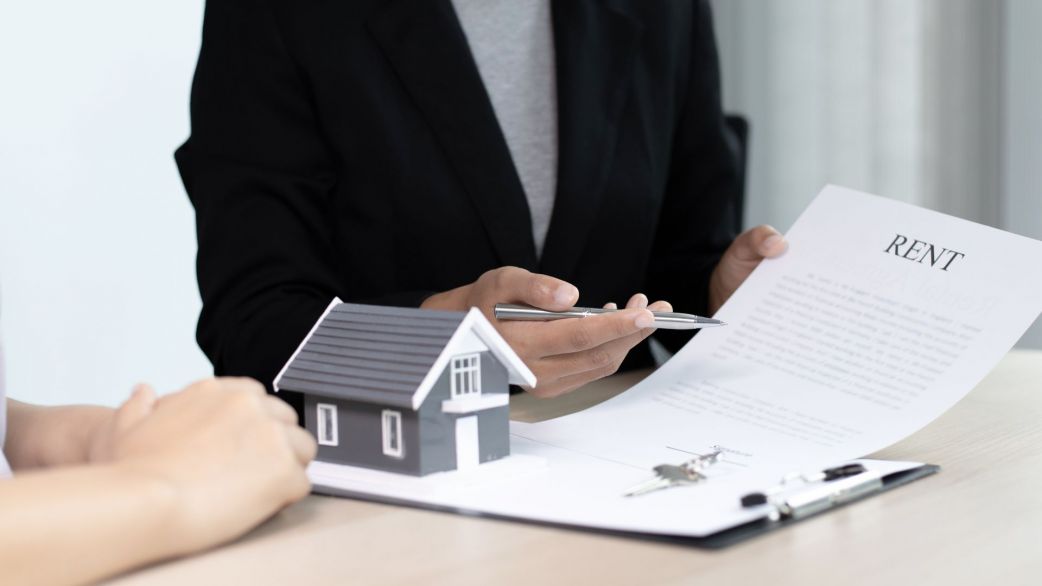Luxury holiday rentals, everything you need to know
Pablo Almagro - Jun 25, 2024 - Pure Living News
Pablo Almagro - Jun 25, 2024 - Pure Living News

Pure Living Properties in collaboration with Pérez de Vargas Abogados has produced a comprehensive guide for landlords who want to rent out their properties.
Luxury holiday rentals, whether majestic villas or premium flats in prime locations, are a growing trend. More and more people are choosing to rent a high quality property for holiday periods or to get to know the area before investing in their own home.
The price of this type of premium accommodation varies greatly depending on the location, features and services offered by each property, but on average they range from 1,000 euros per night for a two-bedroom flat to 8,500 euros for a grand mansion on the Golden Mile.
These figures make luxury holiday rentals one of the most attractive options for owners looking for a short-term return on their investment.
The profitability of luxury holiday rentals depends on the same factors that determine their price, but owners can generally earn an annual return of between 4 and 8% of the initial investment.
This means that a villa in which the owner has invested around five million euros can generate between 200,000 and 400,000 euros per year, although this figure can be multiplied depending on the exclusivity of the property and the length of time it is occupied.
The figures can be very attractive, but to do this successfully it is essential to have an agency with experience and knowledge of the market. Pure Living Properties, with a track record of over 15 years, is a leader in luxury holiday rentals in premium areas of the Golden Triangle.
When a client decides to convert one of their properties into tourist accommodation, there are many aspects to take into account. In order to make it easier for them, Pure Living Properties in collaboration with Pérez de Vargas Abogados, has prepared this complete guide with everything you need to know if you want to make a short term investment profitable.
The first step to convert a property into a luxury holiday rental accommodation is to register it in the Andalusian Tourism Register and comply with the requirements established in the tourism regulations (Decree 28/2016 of 2 February).
The Tourist Use Dwellings (VUT) are:
– Dwellings equipped in conditions of immediate use in which the accommodation service is offered at a price on a regular basis and for tourist purposes.
Consequently, they will not be Tourist Use Dwellings (VUT):
– Those that are transferred without financial consideration.
– Those leased to the same tenant for a period of more than two months.
– Those located in rural areas.
– Tourist flat establishments of the joint group.

Dwellings with any of these characteristics may not be used as Tourist Dwellings:
– Dwellings located in properties whose constitutive titles or statutes of the community of owners contain an express prohibition for the activity of tourist accommodation.
– Accommodation units located in tourist accommodation establishments which are to occupy the whole or an independent part of the building.
– Dwellings recognised as being in a situation of “assimilated to out-of-order”, unless prior express authorisation has been granted by the competent municipal body for the change of activity, in accordance with town planning and environmental legislation.
Furthermore, it should be noted that the Ministry of Tourism of the Andalusian Regional Government maintains the interpretative criterion of Decree 28/2016 whereby, if three or more dwellings for tourist use are available, it must be registered as a Tourist Apartment establishment of the joint group if any of the following circumstances are present, whether the owner of the operation is the owner of the dwelling or whether it is operated by an operating company:
– The three or more dwellings are in the same building or adjoining properties, or
– That they are located within the same urbanisation or residential nucleus, equipped with common facilities or services (non-contiguous properties). In the event that the three or more dwellings occupy the entire building, it would have to be constituted as a Tourist Apartment establishment of the building/complex group.
The key to answering this question lies in the provision or non-provision of complementary services specific to the hotel industry, among others:
– Reception and permanent and continuous customer service in a dedicated area,
– Regular cleaning of the property and accommodation,
– Regular change of bed and bath linen,
– Other services available to the client (laundry, luggage storage, press, reservations, etc.).
– Provision of food and catering services.
On the contrary, they are not considered as complementary services specific to the hotel industry:
– Cleaning of the flat on arrival and departure of the period contracted by each tenant,
– Change of linen in the flat on arrival and departure of the period contracted by each tenant,
– Cleaning of the common areas of the building (entrance, stairs and lifts) as well as of the urbanisation in which it is located (green areas, access gates, pavements and streets) or
– Technical assistance and maintenance services for possible repairs to plumbing, electricity, glass, blinds, locks and electrical appliances.
If these complementary services of the hotel industry are offered, the taxes payable by the owners are as follows:
– IAE: Group 685: Non-Hotel Tourist Accommodation.
– IRNR: Income from economic activity obtained through PE.
– D. INFORMATION: Form 179: To be filed by intermediaries (in particular, by collaborative platforms).
If complementary services typical of the hotel industry are NOT offered, these are the taxes that the owners have to pay:
– IAE: Epigraph 861.1: Rental of dwellings.
– IRPF: Income from real estate capital (without reduction).
– VAT: Exempt.
– IRNR: Income from real estate capital.
– D. INFORMATION: Form 179: To be filed by intermediaries (in particular, by collaborative platforms).
However, when the activity is carried out with at least one full-time employee with a work contract, the income obtained from the tourist rental is income from economic activities.
Finally, if the owner transfers the use of his property to an operating company that will operate in its own name, he must issue the corresponding invoice for the amounts agreed, charging 21% VAT.
Pure Living Properties Rentals Team
The latest changes in the regulation of Holiday Homes have sought to enhance the work of real estate agencies such as Pure Living Properties as management companies.
Operating companies are defined as those natural or legal persons who are assignees of the administration and management of one or more dwellings for tourist use, irrespective of the entitlement to do so, and they must appear as owners of the operation in the declaration of responsibility.
The administration and management of the accommodation shall be presumed when the main services inherent to the accommodation are carried out, and in particular:
– Key handover.
– Reception of guests.
– Attention during the stay.
– Conservation and maintenance of the facilities and equipment of the accommodation unit.
– Cleaning on arrival and departure.
– Check-in and check-out.
The operating company will have to present the corresponding responsible declaration in which it states that it complies with the established requirements, as well as being responsible to the Administration and to the users for the correct provision of the service.
In addition, you must have a legal title to carry out the activity if you have acquired the property in the name of an SL.
It is difficult to give a general answer to this question because of the fiscal and tax implications arising from the use and enjoyment by an administrator or partner who is a natural person of a property owned by a company, without the existence of an authorising contractual title. If the question refers to whether we can use the property as owners and rent it out as tourist accommodation at the same time, the possibility of exploiting a Vivienda de Uso Turístico by rooms is only possible for a natural person, as the latter is required to reside in the property where he/she must be registered.
Decree 28/2016, of 2 February, does not require Tourist Dwellings to have Civil Liability insurance, although it may be advisable. It should be borne in mind that the natural or legal person who appears as the owner of the dwelling in the responsible declaration will be responsible to the Administration and to the users for the correct provision of the service.
The favourable vote of three-fifths of the total number of owners representing three-fifths of the participation quotas shall be required to establish special cost quotas or an increase in the share of the common expenses of the dwelling where the tourist accommodation service is provided, provided that these modifications do not imply an increase of more than 20%. These agreements shall not have retroactive effects.
According to the new Andalusian regulation, tourist dwellings already in use have different deadlines to comply with all the requirements to ensure their quality:
– Six months, until 22 August 2024, to comply with the following:
– One year, until 22 February 2025, to meet the following requirements:
If operating during the months of May, June, July and August, refrigeration is mandatory.
Minimum two burners, microwave oven and refrigerator.
Utensils appropriate to the accommodation capacity (at least crockery, cutlery, glassware, frying pans, pots, pans, serving cutlery, corkscrew, bottle opener, scissors, can opener and colander).
Small electrical appliances (at least blender, toaster or grill, juicer and coffee machine).
Storage furniture.
Cleaning utensils and cleaning product kit with minimum contents of scouring pad, cloth, wipe, cleaning gel and waste bags.
Clothes horse, iron and ironing board.
Selective waste separation.
Smoke detector. A fire extinguisher. o In sleeping rooms, the following new requirements are established:
Beds must measure at least 80 x 190 cm for single beds and 135 x 190 cm for double beds.
Have a wardrobe or space for clothes for every four seats, with an adequate number of hangers.
Light point next to the bed.
Mattresses should be at least 18 cm thick, in good condition and have an even level of resistance over the entire surface.
Well-kept bedding, linen, blankets or duvets and pillows according to the occupancy of the dwelling and a replacement set of bedding.

Raised and educated in Marbella, with a degree in Marketing from the University of Malaga, Pablo Almagro shows a special interest in digital marketing and new technologies. He speaks fluent Spanish and English.